- Home
- Paul Christopher
The Templar conspiracy t-4 Page 12
The Templar conspiracy t-4 Read online
Page 12
"Poached eggs on dry toast, one slice of bacon, no home fries and a cup of decaf coffee that tastes like brown water. You're letting that woman destroy your golden years, Streak. Booze, broads and bang."
"Sadly, Reg, those days on Duc Do Street are long gone. We're old men now."
"Yeah," snorted Reggie, waggling his bright steel claw in the hair. "I'm not half the man I used to be."
"And Maggie Irish is my doctor, not my wife," answered Randy. "Booze, broads and bang are harder on your cholesterol than any wife could ever be." There was an awkward pause. Reggie and Sandy had lost body parts in Vietnam, but Randy's wife, the former cheerleader Dory Cramer, had aborted the baby they'd conceived just before Randy shipped out, and ran off to be a big star in Hollywood. Nobody had ever seen her again. She was a year younger than the rest of them, which meant she was sixty now-probably playing grand-mothers in Depends ads if she was doing anything at all. More likely she'd hit the skids and died of an overdose decades in the past. Forever young; forever the thief of his child that was never allowed to be. It had always struck him as odd that he could hate someone so thoroughly who had disappeared from the face of the earth so long ago, and love someone so thoroughly who had never existed. How could you hate a ghost or love a shade?
"So how was Christmas, Streak?" Reggie asked.
"A positive love fest," said Lockwood, carving a dripping chunk of egg and toast away from the plate and popping it neatly into his mouth.
"Yule logs and chestnuts roasting?" Reggie asked.
"Something like that," said Lockwood. More like a can of Dinty Moore Beef Stew over the sink and endless reruns of Home Alone and It's a Wonderful Life. Once upon a time he'd liked the idea of Turner Classic Movies, but now they just made him think about other Christmases he'd rather not reminisce over. He'd tried to ignore the sappy holiday films, but everything else on cable depressed him even more. CNN was a constant stream of first the Pope getting blown out of his miter and then the attempt on the president. Fox News was full of Glenn Beck weeping along with that cracker idiot named Sinclair, who just happened to be the junior senator from New Hampshire, babbling about the "festering sore of domestic terrorism about to appear like the plague in America if something isn't done quickly." Yeah, Christmas had been a blast.
"So, you going to run for mayor?" Reggie asked. He waved his claw in the air and one of the harried waitresses brought him a mug of coffee. He sipped it and sighed happily.
"Why?" Lockwood smiled. "Just because Time magazine says I'd be a shoo-in? No, thanks."
"I'd get to call you Your Honor." Reggie grinned. "Better than the Blanchette woman."
"Snotty" Dotty Blanchette was in her sixties, unmarried and hard as nails. She'd started off as secretary to a town councilor and clawed her way up the municipal ladder. In a Republican town, she was all Democrat.
"Mayors come and mayors go," said Lockwood. "Even Dotty Blanchette." He broke his single strip of crispy bacon in half and popped it into his mouth. "Besides, nothing ever happens here. All I have to do is sit in my office, rescue cats from trees and eat doughnuts all day. The mayor has the real job."
There was a howl of freezing wind as the front door opened and shut. Streak Lockwood looked up and saw that it was a stranger. A tall, lean man in a long leather coat. He had longish dark hair and eyes half hidden behind tinted sunglasses. The only really odd thing about him was his out-of-season tan, and it didn't come from Sun-N-Go from up on Porter Street, either. Lockwood took a mental snapshot of the man and then got back to his poached eggs and his conversation with Reggie.
Billy Tritt found a space at the counter and sat down.
19
"He's right, this CIA friend of yours," said Brennan. A week had passed since the murder of the vice president and the secretary of state, and Holliday was clandestinely staying in Brennan's spacious apartment in the Palazzo del Quirinale, along with Peggy. The enormous insult Holliday's muscles and ribs had taken from Tritt's Glock had healed to a hand-span's livid bruise across his chest. "Historically you can seek sanctuary within the walls of the Vatican, but the new Holy Father is no friend of mine nor of Cardinal Spada, who will not be Vatican secretary of state much longer, I fear. You will have to leave, and soon. If word gets out that I've been harboring wanted fugitives, excommunication will be the least of it. It'll be like the McCarthy era all over again, or the Salem witch trials. They're on the hunt for any whiff at all of this Jihad al-Salibiyya, or whatever it's called."
"What will happen to you when the new secretary of state is selected?" Peggy asked.
"At best I'll be given a dreary parish in Sligo, where it rains sideways all day long and all the stray cats are always coughing with tuberculosis. If they find out about your involvement and my doings they'll quietly reach out for one of their assassini, who'll see to it that I fall down a flight of stairs or lean too far over a balcony while I'm watering the petunias."
"How long do we have?"
"Days, maybe a week at best. I'll only have a few hours' warning."
"So what do you suggest? This rogue group with the Company is probably on watch everywhere."
"The Vatican's been slipping things in and out of here for a long time, my son. There's a container ship leaving for New Orleans from the harbor at Leghorn in three days. You'll be on it. Her name is Smeraldo Nero, the Black Emerald."
"Sounds piratical enough." Holliday smiled, then grimaced.
"Thank you, Father," said Peggy, giving him a peck on the cheek. He reddened. Then he grew serious again. "Remember what my man in Washington said. I don't think Crusader is over yet. I think you're right in the middle of it. So take care, my friends."
There had been no arrests or even leads on either the murder of the Pope or the attempted murder of the president. Both events had caused everyone's terrorist meters to zoom into the red zone, especially Homeland Security's back home. So far the president had not chosen his second in command, but Kate Sinclair's son, the junior senator from New Hampshire, was stumping around half the nation, calling for action against the upcoming holocaust of domestic terrorism that was going to engulf the nation if some hard choices weren't made and soon.
Brennan left a few moments later to make travel arrangements, leaving Peggy and Holliday alone in the apartment. He looked out across the road to the offices of Vatican Radio, the roof of the building topped by aerials, domes of various sizes and one enormous tower. Less a broadcast station, Holliday knew, than a giant signaling intelligence facility. For that matter, Timothy Brennan was also much more than a simple parish priest.
"I wonder… " he said slowly, putting a hundred shards of idle thought and speculation together.
"What do you wonder, Doc?" Peggy asked, lounging on the couch and reading through a copy of the International Tribune.
"I was marking term papers and you were watching CNN. We went out for dinner on M Street and then walked back to the house."
"Okay," said Peggy, "so you proved you don't have early onset Alzheimer's. So what?"
"Who was on our doorstep?"
"Brennan."
"Never a friend of ours by any means, so why choose us? What the hell did we have to do with any of this?"
"What are you getting at?"
"He fed the whole thing to us like feeding pabulum to a baby. His so-called informant who was confessed to by a so-called CIA agent with a dose of conscience. The murder of both of them. Subtle connections to Rex Deus and the Sinclairs. All of it meant to pique our interest."
"Pique?" Peggy grinned. "I've never been piqued in my life."
"You know what I mean."
"Sure, you think we were being set up. But for what?"
"He gets me interested enough to call some old colleagues, and leads me by the nose right to William Tritt, lets me think it was all my idea."
"You really think he's that subtle?"
"He's the head of the Vatican Secret Service," said Holliday. "You can't get any more subtle than that. Most pe
ople aren't even aware that Sodalitium Pianum even exists." Holliday shook his head. "Damn it to hell! He led us right down the garden path, every step of the way. If I hadn't mentioned Pat Philpot he would have worked the name in himself somehow. Philpot leads us to that disaster in Rock Creek Park, and before you know it we're on the run. I knew something was wrong back then but I just thought Philpot was using me to bird-dog Tritt for him, to take the American assassin out of the picture before anyone found out."
"And now?"
"I think Philpot was telling the truth about the rogue division of the Agency, but now I think he may well be part of it."
"And Brennan?"
"Him, too. He's part of it, as well." Holliday paused. "And then there's the assassination."
"Which one?"
"The VP and the secretary of state. The X on the roof of the limo."
"What about it?"
"Tritt's not the kind to make mistakes like that. Maybe the vice president was the target all along. The president's going to have to appoint a replacement soon."
"Sinclair," said Peggy, getting it, her eyes widening.
"Sinclair." Holliday nodded.
"So, what do we do?"
"We sure as hell don't get on the good old SS Black Emerald, I can tell you that much." He paused. "Pack up anything you need, bring the memory stick with those pictures of Tritt on the roof and let's get out of here."
"Where are we going?"
"Back to Geneva. Let's begin at the beginning."
It was close to midnight when the nondescript Mercedes taxi pulled up in front of 16 Via Tunis in Rome and let out its passenger, a tall, elegantly dressed man in a topcoat and carrying an attache case. The door into the gray, five-story stucco apartment building was covered by an ornate wrought-iron grille. A dozen buzzers and an intercom were set into the doorframe. Mike Harris, deputy director of operations for the CIA, pressed the buzzer for number 6. He glanced to his left; the restaurant next door was already closed and there was no one on the street.
"Si? Chi I?"
"Crusader," replied Harris, speaking clearly into the intercom grille.
There was a long silence. Then the buzzer sounded and the lock on the wrought-iron gate clicked. Harris pulled open the gate, opened the door and stepped into a dim hallway. Directly ahead of him was a grimy, winding staircase leading upward. He climbed all five flights to the top story. The floor was black-and-white checkerboard tile and there was only a single door. The lighting in the hall was bright and the walls were clean and freshly painted. It was anything but grimy. Discreetly placed above the door on the ceiling was a small eye-in-the-sky camera, a miniature version of the ones they used in Las Vegas casinos. Harris knocked firmly on the door, feeling metal under his knuckles rather than the wood it appeared to be. He smiled and waited.
A few seconds later the door opened. It was Brennan. The two men shook hands and Brennan ushered the CIA director into the apartment.
"Been a long time, Mr. Harris." Brennan said.
"Indeed it has, Father Brennan. Is he in?"
"Of course," answered the priest. He led Harris down the hallway to a spacious living room that faced the street. There were three large windows, the shutters all firmly closed. Once again the slats of the shutters appeared to be varnished wood, but the CIA man was willing to bet they were steel, just like the door.
The room had a plain, grandmotherly feel to it. There were brass lamps here and there, lots of bookcases everywhere and an old Persian carpet on the floor. There were two short couches, two armchairs, a gas-fed fireplace and an old wooden desk covered with stacks of paper and file folders. Antonio Niccolo, Cardinal Spada, Vatican secretary of state, was seated behind the desk, dressed in a simple black suit with a red collar tab to mark his rank. He had a cigar-Harris assumed it was Cuban-in his hand and there was a heavy-looking glass full of amber liquid in front of him. The photograph behind him on the wall-papered wall was of him and the late Pope in better days. The cigar, at least at the moment, was unlit. Brennan took a seat in one of the armchairs. Harris dropped down onto one of the small upholstered couches.
"Good flight?" Spada asked.
Harris shrugged. "I took the company Citation. Seven hundred per, without any screaming babies or other people sneezing on me."
"The benefits of power." Cardinal Spada smiled.
"Not for long if the present administration has its way," grumbled Harris. "The son of a bitch wants me to pool with Homeland Security and the Bureau." He shook his head. "What does the Bureau need with a plane that can fly seven hundred miles an hour? They couldn't find the key to the executive bathroom."
"A sad state of affairs," commiserated Spada.
"Every president's the same. They're going to shake things up, get things done, pull the country up by its bootstraps. They don't seem to understand we're the ones who really run things and we always have, and that's never going to change."
"Certainly not if you can help it," said the cardinal dryly.
"Damn right," snorted Harris. "Speaking of which, how's your new boss doing?"
"Coming along," smiled Spada. "As Cardinal Urbana he was desperate for the job, although the scales were tipping toward Washington. Imagine that! An American Pope, and black, as well. Foley almost made it last time. Everyone was becoming nervous. I called in a few favors, rattled a few old bones in their hiding places and made sure we had an Italian in the chair. Too many outsiders recently-Poles, Germans. Urbana knows I put him in power and knows that I can keep him there; he won't be choosing any new secretary of state until I tell him to."
"Want the big job yourself?" Harris laughed. "You're young enough to keep it for a while."
For the first time Brennan realized that the CIA man must have been drinking heavily on the flight to Rome.
"Good Lord, no! The Vatican is much like your country, Mr. Harris. It is controlled and operated by the bureaucrats like you and me, not the figureheads. Being the Pope requires far more Latin than I ever learned. Not to mention the fact that I like my favorite restaurants too much to give them up. The Pope has little in the way of privacy."
"What about Holliday and the Blackstock woman?" Harris asked, turning toward Brennan.
"As of nine o'clock tonight they slipped out of the museum entrance into a taxi, rented a car in Fumicino and are headed back to Geneva, presumably on the trail of our Mr. Tritt."
"You have the pictures Ms. Blackstock took?"
Brennan dug into the pocket of his plain black jacket and took out a USB memory stick.
"Right here." He smiled. "Downloaded them from her camera while they were sleeping. We've got everything. It's proof positive of Holliday's involvement with the attempt on the president." Harris reached for the plastic memory device but Brennan pulled it out of his reach. "Not yet, Mr. Harris. There are a few quid pro quos to be dealt with."
"How did you get them out of your hair and on their own?" Harris asked. "The senator's mother will want to know."
"Holliday is smart. He's like an old trout thinking about taking the hook; he has to convince himself that taking it was his idea. I had to play him for a long time, but you could see him putting it together piece by piece. It was too convenient and everything came back to me in the end. Too much coincidence for a man like that to swallow."
The older priest smiled and made a vague attempt to brush ash off his lapels before going on. "The piece de resistance was telling him Cardinal Spada was due for the chopping block and I was about to be exiled to the bog country of my youth. It was one thing to have me around when I could get him some access, but he had to know I'd be useless from now on."
"Excellent." Harris nodded.
"What about the fingerprints from the Tritt house in the Bahamas?" Brennan asked.
"Safe and sound." Harris nodded benignly.
"And Tritt himself?" Spada asked.
"In place," Harris said.
"He has what he needs?" Spada asked. "He's been given the information?"
/>
"Yes. Nothing will connect him to us. It's quite ingenious, if I do say so myself."
"Holliday's next jigsaw piece?"
"Done."
"Matoon?"
"Firing on all cylinders."
"Your Jihadist?" Spada asked.
"Ready and waiting. We're primed. Crusader is good to go."
20
The Maine Mall is a 1,200,000 square foot sprawling shopping complex in the southern part of the city of Portland and is anchored by JCPenney, Sears, Best Buy, Macy's and Sports Authority. It contains another 140 shops and services, including a food court and several sit-down family restaurants. It is the largest shopping mall in Maine, and more major drug deals are completed here than in any other place in the state, mostly in the food court, particularly the McDonald's section. The food court is located on the main level at the western, or JCPenney, end of the mall.
Today the blank-faced Chinese group was at Arby's and the Vietnamese were chowing down on Big Macs. There were four of each, but the principals were obvious. One Vietnamese, a short man in his early twenties, was eating nothing and neither was his Chinese alter ego in the seating section next door. The noise level was deafening, like a Niagara Falls of chatter. Most people avoided sitting near the young Asian men in their black leather jackets, slicked oily hair and opaque or reflective sunglasses. Their privacy was guaranteed.
At an unseen signal the Chinese leader got up from his place, accompanied by one bodyguard. He slipped into the booth occupied by the Vietnamese man. He, too, had a single bodyguard with him. They spoke for a moment, probably in English, although William Tritt couldn't be sure. He watched from just outside Ben amp; Jerry's as the meeting came to an end and the two men shook hands. It was the handshake that gave it away, of course. Hand shaking was distinctly non-Asian and rarely practiced by them except with whites. Ergo it had a purpose, and if you were watching as closely as William Tritt was you would have seen it: two sets of car keys being exchanged. It was the perfect pass over and any narcotics agent arresting either group at this point would find no evidence of any sort of drugs on the men. The keys would have no identifying tags and no electronic beepers. Checking all of the thousands of vehicles in the enormous parking lots surrounding the mall on three sides would be impossible.

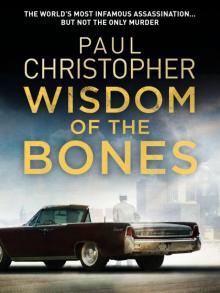 Wisdom of the Bones
Wisdom of the Bones The House of Special Purpose
The House of Special Purpose The Second Assassin
The Second Assassin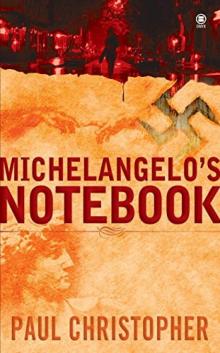 Michelangelo's Notebook
Michelangelo's Notebook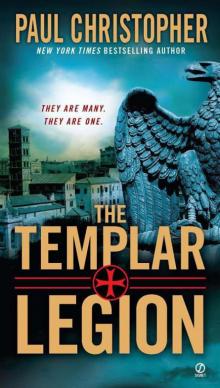 Templar Legion
Templar Legion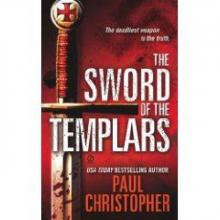 The Sword of the Templars t-1
The Sword of the Templars t-1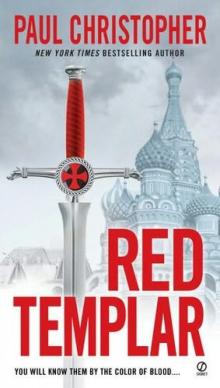 Red Templar
Red Templar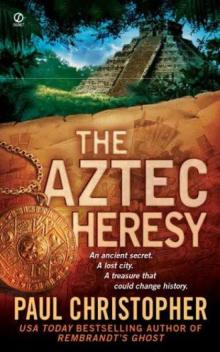 The Aztec Heresy
The Aztec Heresy The Templar Legion
The Templar Legion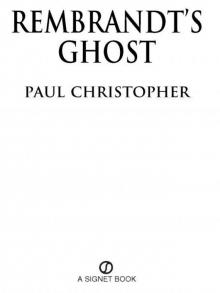 Rembrandt's Ghost
Rembrandt's Ghost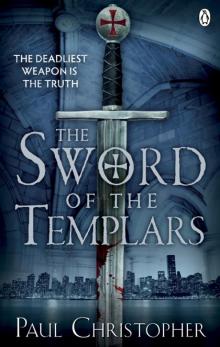 Sword of the Templars
Sword of the Templars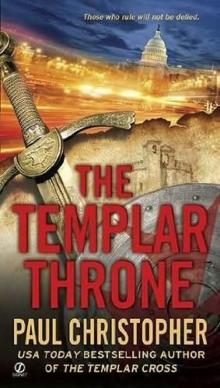 The Templar throne t-3
The Templar throne t-3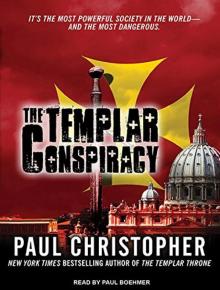 The Templar Conspiracy
The Templar Conspiracy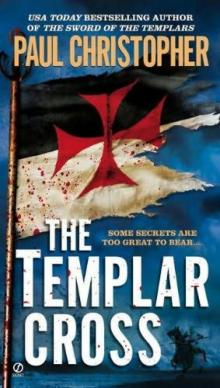 The Templar Cross t-2
The Templar Cross t-2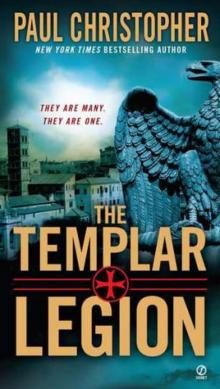 The Templar Legion t-5
The Templar Legion t-5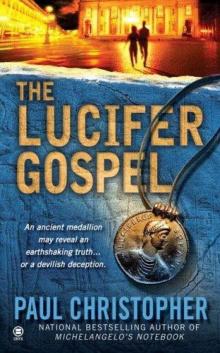 The Lucifer Gospel
The Lucifer Gospel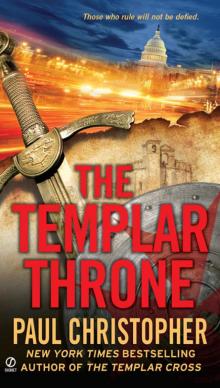 Templar Throne
Templar Throne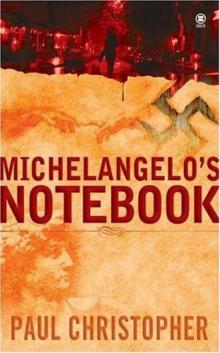 Michelangelo_s Notebook fr-1
Michelangelo_s Notebook fr-1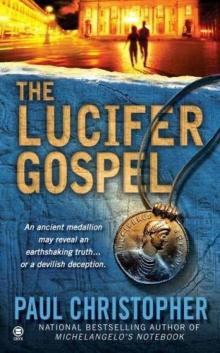 The Lucifer Gospel fr-2
The Lucifer Gospel fr-2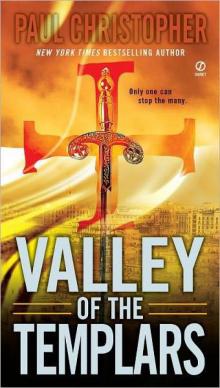 Valley of the Templars ts-7
Valley of the Templars ts-7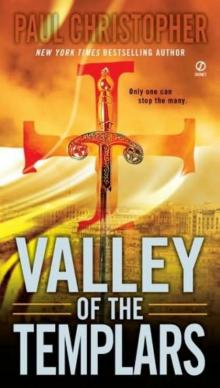 Valley of the Templars
Valley of the Templars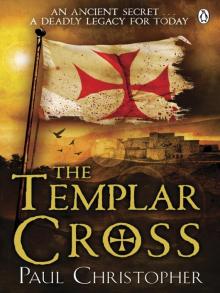 Templar Cross
Templar Cross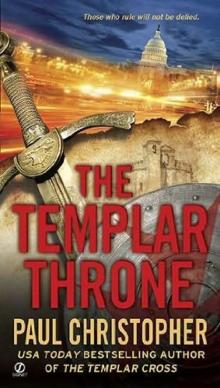 The Templar Throne
The Templar Throne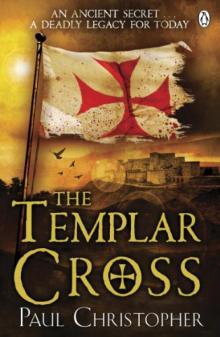 The Templar Cross
The Templar Cross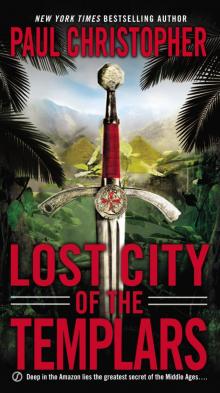 Lost City of the Templars
Lost City of the Templars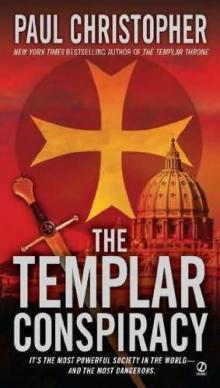 The Templar conspiracy t-4
The Templar conspiracy t-4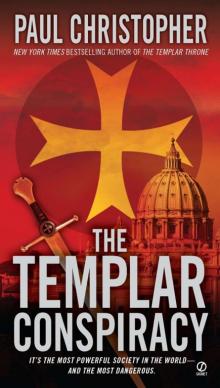 Templar Conspiracy
Templar Conspiracy